#Bruno Ravel
Text
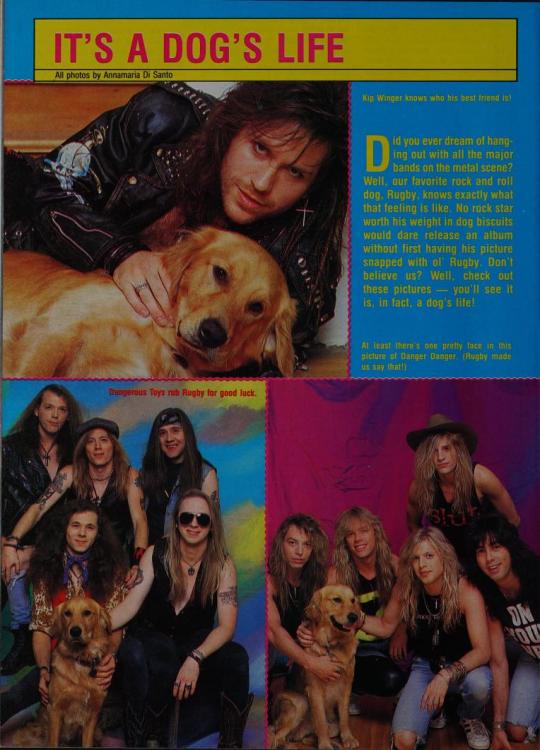

WINGER, DANGEROUS TOYS, DANGER DANGER, and TRIXTER hang out with dogs | HIT PARADER, July 1991.
#mine#hit parader#kip winger#winger#winger band#dangerous toys#jason mcmaster#scott dalhover#mark greary#danny aaron#dangerous toys band#mike watson#danger danger#danger danger band#ted poley#bruno ravel#steve west#andy timmons#trixter#pete loran#steve brown#pj farley#mark scott#glam metal#hair metal#hard rock#rock#rock n roll#80s music#80s metal
12 notes
·
View notes
Text


Danger Danger performing.
7 notes
·
View notes
Text
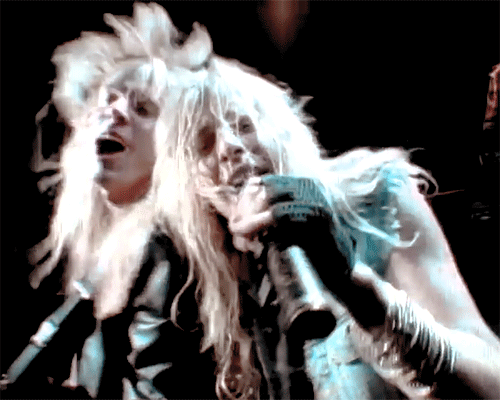


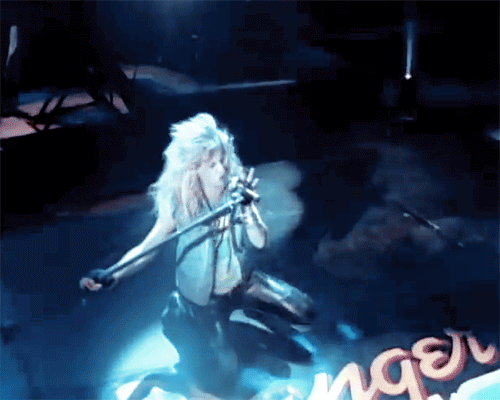




Danger Danger: Bang Bang
Bang Bang, what's that sound I gave you my love and you shot me down Bang Bang, you're so cool Playin' a game, someday you're gonna lose Bang! Bang!
#danger danger#Ted poley#Steve west#bruno ravel#kasey smith#Andy Timmons#80s rock#80s music#80s metal#glam rock#glam metal#hard rock#heavy metal#danger danger gif#my gif#gif
15 notes
·
View notes
Text
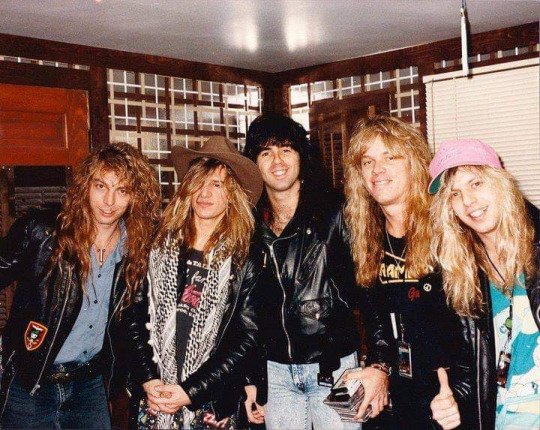
Danger Danger <3
16 notes
·
View notes
Text

2 notes
·
View notes
Text
REVIEW: The Defiants - Drive (2023)

View On WordPress
0 notes
Text
THE DEFIANTS - "Drive" (Frontiers Music s.r.l.)
The Defiants have announced their return with a new album, their third overall, “Drive”! Formed by Paul Laine, Bruno Ravel, and Rob Marcello, who are all current or former members of popular hard rockers Danger Danger, The Defiants latest opus is yet another impeccable slice of melodic hard rock.
Continue reading Untitled

View On WordPress
0 notes
Text
Danger Danger Members Of THE DEFIANTS Release New Video For "Go Big Or Go Home"
The Defiants release new single and video “Go Big Or Go Home” from anticipated new album “Drive”
“Drive” out on June 9th is available for pre save/order: https://pulse.ly/s2i6f1rf14 More info:Formed by Paul Laine, Bruno Ravel, and Rob Marcello, who are all current or former members of popular hard rockers Danger Danger, The Defiants latest opus is yet another impeccable slice of melodic hard…

View On WordPress
0 notes
Audio
(The Metal Gods Meltdown)
0 notes
Text
To Ravel-Out The Weaved-Up Follies: The Decline and Fall of Homestuck^2
[I first started this essay a few months ago during a strange, brief resurgence of Homestuck^2 discussion that vanished almost as quickly as it began. Because my brain is A Wretchedly Uncooperative Thing this essay has stayed in draft form, being picked at, until—naturally—Homestuck^2 surprised us all by relaunching with a completely new team at its head. I’ve decided to push myself to publish this anyway, because I still think the core of my thesis is correct. So, keeping in mind that this leaves the starting gate slightly later than I would have wished (not knowing I was in a race), let us commence.]
___________________________________________________
“A beginning is the time for taking the most delicate care that the balances are correct.
-Frank Herbert, Dune, 1965
“Once upon a time there was a Boojum——" the Professor began, but stopped suddenly. "I forget the rest of the Fable," he said. "And there was a lesson to be learned from it. I'm afraid I forget that, too."
-Lewis Carroll, Sylvie and Bruno Concluded, 1893
Several posts about Homestuck^2 have started to crop-up… adjacent to my dash. I'm not attaching myself to those posts because it seems rude, but their points are largely an attempt at revisionism of the fate of Homestuck^2. Understand I'm not using the term ‘revisionist’ pejoratively: it is common, even sensible for artists to look back at failed projects and try to pick up the pieces and derive some value from them. I’ve done it myself, many times. Nobody likes to say "I entirely wasted my time, my passion, and my creative energy for [X] days, months, years.” It is important to look at a failure and see what you did right, treasure the parts that were worth treasuring.
But equally I don't want to go too far in rehabilitating what was, undeniably, a failure. There's a lot of critical theory being brought-up, a lot of talk of Homestuck^2 from a standpoint of post-modernism, or post-post-modernism, trying to engage with what Homestuck^2 was as a platform for ideas. A habitus, if you’ll forgive the jargon, what Bourdieu famously called (in a Hussie-like masterwork of language) “the structured structures predisposed to function as structuring structures.”
I get it. I get what the Homestuck^2 team was trying to do intellectually: where their minds were at, the hostility they faced, the vitriol they were harmed by. I get it.
But that's not why Homestuck^2 failed. Homestuck^2 did not fail because it dreamed too big, or was too intellectual. It did not fail because its themes were not worth exploring, or because its lens was too meta: for most of its original run, after all, Homestuck is nothing but an interrogation of Homestuck. Its brains were not why Homestuck^2 failed. The problem was its execution. The problem was its heart.
There's a lot to be said about not giving fans what they think they want. The internet drowns in coffee shop AUs where everything interesting about a franchise's characters has been vulgarly ripped from the text, leaving a drama-less, tension-less pablum where everything is stagnant and unchanging, everyone gets along, all the romances are cute and smooth, and you can burrow in the comforting ooze of artistic and narrative death. Give fans exactly what they want and frequently nothing creatively meaningful will result. Fandoms famously resisted both The Empire Strikes Back and The Wrath of Khan when they first released because they pushed characters to change, and yet they grew to be beloved as fans realized that what they thought they wanted and what it turned out they could enjoy were not as alike s they assumed. There's nothing wrong with showing fans that there can be more to a story that just doing the same thing over again, retrenching into the pablum wastelands of growth-free comfort fics.
But when asking whether Homestuck^2 did or did not gave fans what they wanted or needed, we must first raise an important establishing question: which fans? That is to say: who was its intended audience? Who was Homestuck^2 written for?
At its peak, Homestuck Classic had millions of readers and a million page-hits a day. There was a whole contingent of fandom who came only for the trolls (in some baffling cases actually skipping the first four acts of the story to jump right to into Act 5). There was another contingent who loved the video game parody, there were Problem Sleuth junkies, and in the early acts there were the suggestion box obsessives: all of these were readers who were fans of parts of the story but largely stopped reading Homestuck as the story got more concerned with the complex nature of stories and narrative itself. Homestuck^2 is clearly not for them—as indeed Homestuck Classic itself had not 'been' for them for much of its run. Homestuck^2 is also not for new readers: if you haven't read the Homestuck Epilogues through at least twice, if you don't remember all its major plot points and the plot points of Homestuck Classic, it makes no attempt to onboard you and is, probably in-arguably, outright impenetrable to those not already in the know. It’s not impossible—there were SBaHJ fans who onboarded with the first context-free SBaHJ and went ‘yeah, I can vibe with this’ and never knew or cared that it was a reference work for something else— but it doesn’t seem likely that many people ‘jumped on’ the Homestuck train with Homestuck^2. I think Homestuck^2’s writers would agree that Homestuck^2 expected you to know the lay of the land. So: nobody new was likely going to read Homestuck^2, and (given its density of Homestuck call-backs) neither was it for more casual Homestuck fans. Homestuck^2 was not even for the truly otiose Andrew Hussie diehards: Hussie was only tangentially involved in the project, they weren't writing it, and there's seemingly no references at all to Barty's Brew-Ha-Ha or Inappropriate Time for Ham, so that's a full seventeen readers it also likely turned off (sorry, comrades. One day…)
So who, then, was Homestuck^2 for? Its intended readers seemed to be those who read the Epilogues and loved them. This is a complicated issue: for those who weren’t there, the Epilogues were… controversial. I defended them at the time: I liked them, even admired them, partially because I believed with the fervor of a zealot that there was still something else to come. I called this final entry ‘Pumpkin.’ Homestuck, a story that always rejected binaries, surely was not meant to conclude with over-the-top Candy and/or grim, dour Meat. I knew in my heart that Pumpkin was coming, where John rejected both of these dark and crazy futures and found a third way in which his friends grew up and matured without losing themselves and their friendship: not a story without conflict, but surely the prime timeline as existed in general fandom imagination could not accept Dirk’s grotesque, manipulative suicide, breastfeeding Gamzee, brutal civil wars, and Dirk and Jane becoming so cruel and hateful. Surely that was set-up to pay-off a better future later: after all, like its author, Homestuck abhorred a binary.
But Pumpkin never came, and now I look at the Epilogues and I find lot in it (for lack of a better term) ‘edge lord showboating.’ It feels like reading 90s comics all over again, including the bits with cannibalism. A lot of bleak and miserable things happen in the narrative, and I find myself asking ‘do they happen because they should, or just because they could?’ (And how many times can one franchise treat Jade Harley like absolutely garbage?)
But if the Epilogues had a true and golden virtue, it was their framing as intrinsically being fan-fiction: Meat or Candy, this was not the 'true' continuation of the franchise (as much as that means anything), this was speculative futures, not much different from Doc Scratch’s story of the Vriska/Noir battle. A one-shot, in other terms, an elseworlds: not a definitive statement about What Homestuck Was From Now On, but an experiment in tone and structure. How far can you push Homestuck before it doesn’t feel like Homestuck any more? (Turns out not nearly as far as you might think.)
A lot of people didn’t notice, however, or perhaps simply didn’t care: the Epilogues ripped the Homestuck fandom apart. Homestuck Classic often did things in bad-taste as part of its odd charm: Gamzee’s codpiece, Jack playing dress-up after slaughtering a nice couple on a date, Caliborn’s cartoonish misogyny. Some bits land, some don’t, but for fans—I think for many, if not most—the Epilogues crossed a line that they were not comfortable with.
In some quarters the Epilogues are reviled, and I honestly can not fault people who found them off-putting. They are: intentionally so, provocatively so, and it should be okay for people to be put off by them without insisting that the haters ‘just didn’t get it.’ Often they did: they ‘got it,’ they just didn’t like it. It ‘squiked them out’ as we used to say, and the writers had to have known it would: discomfort is the nature and partial purpose of provocative art.
(Sidebar: Epilogue writers, you wrote a plot-line in which 16-year old Homestuck Act 6 protagonist Jane Crocker grows-up to become a racist dictator who has a cuckolding sexual relationship with Gamzee Makarra that involves kin-play involving public breastfeeding.
Sorry Andres Serranos acolytes, that’s not going to go down super-well with the majority of people, not because they are uptight suburban prudes but because they liked Jane Crocker and felt this outcome was not grounded well in the character they knew: only the obtuse would act shocked and try and argue it was due to a lack of sophistication. You took a gamble, you took a risk, you faced the outcome. You fucked around with ICP Hitler breastfeeding cuckoldry and you found out.)
So: who was Homestuck^2 for? It was for people who had read Homestuck multiple times, had read the Epilogues multiple times, and wanted a sequel that involved those Epilogues.
That is… a small audience. A very small audience. I counted myself among them, but had no illusions that its reach was ever going to be very large. Homestuck^2 was never going to be the Second Coming of Homestuck as a sui generis cultural phenomenon: seemingly by design, it was deliberately written for an insular audience who liked a controversial and difficult interpretation of a famous story and wanted more of that interpretation. So the Homestuck^2 team wrote for them: they came to the table with big dreams and big ideas. They came to the table with lots of critical theory under their belts: they knew their Barthes and Baudrillard, they could reference queer theory and the legacy of post-structuralism, they were the sort of people who knew how to situate Homestuck in post-post-modernism and what that meant for the nature of its exploration of stories.
They had an audience, and they had a plan. They were going to give the fans what they wanted.
So after much hype and fanfare, after interviews and the Tumblr equivalent of a press-junket—which saw the new team saying how excited they were to tackle Homestuck’s legacy, how many great ideas they had, how much having a diverse team was going to see Homestuck ‘done right’—Homestuck^2 first published on the 25th of October, 2019, releasing 32 pages.
We start in the glittering majesty of space. The camera swoops in among the stars, barrelling towards a rushing spacecraft (every frame of Homestuck^2 looks great, the visual arts team's work is its unquestioned highlight). We aim at a viewport in the spacecraft’s hull and slowly the Muti-Narratively-Dimensional Ubervillian Dirk Strider comes into view. Fresh from his triumph in the Epilogues, continuing his wicked schemes, he looks right at the camera, and—speaking directly to the audience—he voices the first line of dialogue in Homestuck^2:
"Surprise, bitch."
…
There is…
…
… there is no coming from back that.
There is no saving it.
It is the 25th of October, 2019, and Homestuck^2 launches with its own death-rattle. It stumbles out of the gate like a beautiful racing pony catching its delicate hoof on the sharp, treacherous edge of an unwieldy analogy and tumbling into the indifferent soil of hard reality, shattering all four legs and immediately marking itself for teary euthanasia at the hand of the devastated young girl with the violet eyes who raised it from a foal and dreamed of making Nationals.
We have established that Homestuck^2’s potential audience was small. The people who were most likely to like it were already an insular, distinctive group who had bought-in to what much or all the Epilogues had to offer. Homestuck^2’s opening-day crowd did not need to be sold on the word of the Lord—they already believe it: they came to see their first glimpse of the promised land.
And in its very first conversation with that audience, in its very first words, Homestuck^2 makes the most spectacular miscalculation of tone since 2013's DmC: Devil May Cry—or for those of us of who remember the 90s: ‘Dirk Strider’s about to make you his bitch.’
There's nothing wrong with starting a story with a villain, there's nothing wrong with a villain being a contemptible heel to its audience, but Homestuck^2 spends its opening 32 entries—which, at over 7600 words are longer than the prologue to the Homestuck Epilogues—jumping between Dirk’s smarmy conversations with fellow characters and a monologue to the audience, pages infused with an arrogance and condescension that is downright enervating. The text is frequently dense, so dense it feels like chewing your way through a plank of wood. It is actively tiring to read: I bailed on my first attempt at reading Homestuck^2 when it originally dropped because I just did not have the energy to squint at my screen and read that much orange-on-off-white text.
It is, to be clear, contemptuous. Dirk did much the same in the Epilogues, but the locus has changed. In the Epilogues Dirk taunts the reader with the changes he is making to the story: he knows they object to his manipulations, and he preens as good villains do. But in Homestuck^2, Dirk speaks not of his changes but of the very existence of Homestuck^2 itself. He treats his audience as inherently hostile to the entire existence of the work they have just shown-up to read (or even support via a Patreon), a hostility that culminates when he ‘opens’ a suggestion box and receives the suggestion ‘Dirk: Stop Making Homestuck,’—which he at-once rejects and goes on to monologue some more.
Dirk is talking to an audience who isn’t there. He is speaking to everyone who didn’t like the Epilogues and objects to Homestuck’s 'sequel' directly following them: but that audience isn’t reading Homestuck^2. They bailed in advance, and any who did try and keep an open mind likely jumped ship the moment the comic started by calling them a bitch and implying they’re idiots. The only people likely to read past the fifth page are those who already bought-in to Homestuck^2’s plan: and they are greeted with some 32 pages and 7600 words of the comic’s villain re-litigating and justifying that plan over and over and over again to people who nominally already agreed with him.
It is draining. It is annoying. It is boring to read.
There’s so much you could critique about Homestuck^2’s choices: from Rose cheating on Kanaya to impregnate Jade to Jane Crocker going full Trump and keeping kids in cages. Equally there’s arguments to be made that Homestuck^2’s very premature cancellation inhibits any ability to judge the story fairly: like any serialized narrative stopped mid-way, we have no way of knowing what narrative payoffs were supposed to be. Decisions that seemed baffling on page 8 might prove brilliant and bold by page 8000. But we never got to page 8000, because Homestuck^2 made one crucial error:
It started by telling its audience they were fools for not being smart enough to appreciate how brilliant Homestuck^2 was going to be, and then spent a majority of some 7600 words repeating itself like the worst self-pitying incel you’ve ever had the misfortune to be trapped with at a party. If only the ungrateful could realize how smart, handsome, and well-educated I—Homestuck^2—am, the love I deserve will come flowing in. I’ll show them all.
Homestuck^2 never recovered from that first, fatal error. The rest of its choices, good and bad, are almost irrelevant in the face of that opening broadside, that hostility, that tedium. Homestuck Classic earned its walls of text and at least knew how to space them: Hometuck^2 took its audience forbearance as a given and opens with a lecture on its principles and quality like an unusually snide abstract on a sociology paper. Homestuck^2 essentially began by telling its audience to leave unless they were willing to give it carte blanche, to roll over for its brilliance from the first, to accept in advance that its intelligence and virtue were first rate. So the audience did leave and it never came back and eventually the whole thing collapsed via artist infighting that was so rancorous and possibly subsumed by NDAs that to this day no one has ever halfway adequately explained what happened at the end.
But that ending was preordained from the beginning, for the balance was hopelessly incorrect.
So to anyone trying to write a revisionist history of Homestuck^2 in which its downfall was the fault of readers who simply didn’t ‘give it a chance,’ who didn’t appreciate its themes, who couldn’t grasp (or didn’t care to grasp) its intellectual bonafides (not to mention its extraordinary self-assurance that it was going to be queer Homestuck ‘done right,’ which is a whole essay about a priori reasoning in and of itself)... in other words, a history in which Homestuck^2' downfall happened because people just didn’t ‘get it,’ I’d like to sum up my counter-argument succinctly:
People didn’t like Homestuck^2 because you wrote it bad.
[Afterwards:
There is something bitingly funny about the ‘return’ of Homestuck^2 with the announcement that, from what I can gather, seemingly every person involved with the original project was fired (or, as they’d probably insist, refused to come back). Dirk’s preening, overwhelming arrogance, that ‘Dirk: Stop Making Homestuck’ prompt, will forever haunt the original team’s unwieldy vision. “I’d bet you just looove for us not to make Homestuck anymore” the team said, with all the confidence of an entrepreneur dismissing safety regulations before climbing into his homemade submarine, and boy were lessons learned. My problem with the return, however, is that I don’t know who genuinely wants to see the story of Homestuck^2 finished: the remaining cadre of die-hard patrons who still have enough goodwill to want the promise of the story’s finale fulfilled is microscopic. I’d argue there’s more people waiting for the conclusion of Wizardy Herbert, and I’m the only person I know who has ever read it. What I mean is: as a choice to revive a struggling franchise it doesn’t make much sense, and further—if it is not clear—I don’t think this is a story worth finishing. What is to be salvaged? Jane-the-Dictator, Rose’s cheating, Obnoxious BabyVriska, Dirk Strider the monster? The problem with Homestuck^2 is that Pesterquest happened, and those who played it went ‘this—this is the kind of story we were hoping for, not your edge lord showboating.’ And we only got one Pesterquest and Homestuck^2 limped on for another year reviled, ignored, and eventually forgotten. When it died, most people didn’t have any idea, because the drama never crossed their screens: nobody was talking about it any more. As my best friend noted, give us more Paradox Space. Give us more stories with joy and some sense of fun, something not written by people who often felt like they had an ‘End of Evangelion’ style hatred of Homestuck, or at the very least took the old joke that Hussie was ‘trolling’ his audience at face value. (Writing a good story with twists, set-backs, and tragic moments is not trolling, it is just writing a good story.) Homestuck^2 never felt like it understood that: it was rude and iconoclastic for no more compelling reason than it thought that was meaningful. But then I think the legacy of Epilogues has been extremely toxic—part of the positivity towards Pesterquest was that it let the Epilogues go, featuring a triumphant moment where YoungDirk confronts his Epilogues self and goes ‘I don’t have to be a huge wanker, actually, I can stay a character people can stand and even love again.’
Do that, new team. Pesterquest is named-dropped on the new site more than once, and my dream is that its cast arrives and overthrows the corrosive toxicity of the Epilogues, banishes it to the far realm of underbaked elsewhere ‘what-ifs’ along with every DC cannibalism story and that time Peter Parker’s radioactive semen gave MJ cancer.
The Epilogues and Homestuck^2 are, at this point, not worth salvaging—but I’d happily see them formally buried.]
#homestuck#Homestuck 2#Homestuck^2#homestuck beyond canon#andrew hussie#dirk strider#pesterquest#homestuck team#james roach#jane crocker#rose lalonde#kanaya maryam#homestuck epilogues#Wizardy Herbert#Vriska Serket#Jade Harley#daikatana#john romero
112 notes
·
View notes
Text
Confession and Ravelation - Part 3 (JJBA Vampire Hunter AU)
New chapter up now! Fugo and Bucciarati finally meet up again.
~~~~~~
Read on Ao3
~~~~~~~
“What do you want, Bucciarati?” Fugo snapped, seeming to get more agitated by the second.
Bruno held up a hand. “I came to ask a favor.”
“Take off the glasses.”
The request took him a bit by surprise. “I will in a moment, but first I have to explain a few things…”
“Take off the damn glasses, Bucciarati.”
Bruno sighed and closed his eyes tiredly as he reached up. “Very well.” He removed the tinted glasses before he turned his gaze upward to meet Fugo’s.
The young man balked, a strangled cry bubbling in his throat as he staggered back a step. “You—what the hell happened to you?”
“The Boss turned me on San Giorgio,” Bruno admitted tiredly.
“San Giorgio?!” Fugo snarled. “Did you know that night, when you lied to our faces?”
“I wasn’t certain…”
“But you suspected, even before I left,” Fugo accused. “What have you done with the others?!”
“I’ve done nothing with them!” Bruno snapped. “How could you think that of me?”
“Because he’s the one who turned you!” Fugo made a strangled sound, his hand fumbling in his coat before he yanked a stake out, holding it up shakily. “Tell me why I shouldn’t put this in your heart right now.”
“Because that’s not what we do—not without cause,” Bruno said firmly.
“And how do I know I don’t have cause?”
“Because I wanted to meet in a place where I have no strength, and you know me, Pannacotta. Didn’t I swear all those years ago that I would never hurt you?”
#jojo's bizarre adventure#jjba fanfic#jjba part 5#vampire hunter au#pannacotta fugo#bruno bucciarati#vampire bucciarati#angst#golden wind au#vento aureo au
6 notes
·
View notes
Text
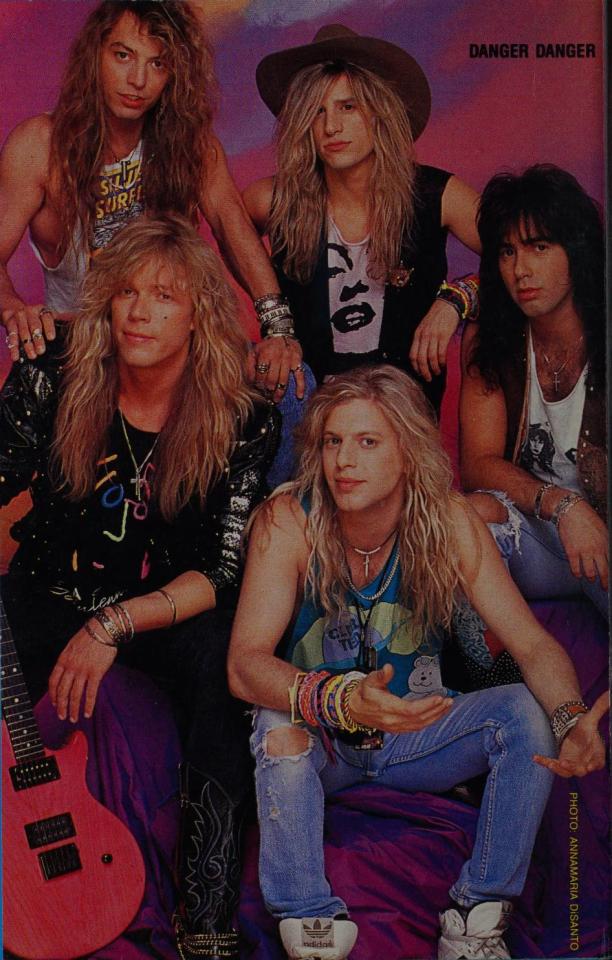
DANGER DANGER (1986 - present) | HIT PARADER, September 1991.
#mine#danger danger#ted poley#bruno ravel#steve west#andy timmons#80s glam#90s glam#80s music#90s music#80s bands#90s bands#glam metal#glam rock#hard rock#classic rock#music#80s aesthetic#90s aesthetic#music poster#magazine#hit parader
14 notes
·
View notes
Photo
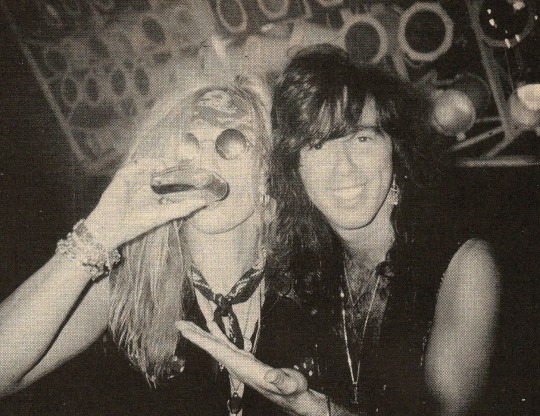
Steve West and Bruno Ravel on the set of the “Monkey Business” video.
8 notes
·
View notes
Text
🩵🩵🩵🩵
#i love this band#danger danger#Ted poley#steve west#Bruno ravel#kasey smith#Andy timmons#from my tiktok#video
2 notes
·
View notes
Text
Danger Danger

4 notes
·
View notes
Text
Il preside del liceo Maurice Ravel ha lasciato l'istituto per ragioni legate alla sua incolumità. Tutto è iniziato il 28 febbraio scorso, quando aveva chiesto a tre studentesse di rispettare la laicità della scuola francese
Parigi. Temeva di fare la fine di Samuel Paty, il professore di Storia e Geografia decapitato da un jihadista ceceno per aver insegnato la laicità ai suoi studenti, o di Dominique Bernard, docente di Francese assassinato da uno studente radicalizzato all’entrata dell’istituto Gambetta-Carnot di Arras per gli stessi motivi. Il preside del liceo Maurice Ravel, situato nel Ventesimo arrondissement di Parigi, ha deciso di dimettersi per “motivi di sicurezza”, dopo le minacce di morte di cui è oggetto da un mese. Tutto è iniziato il 28 febbraio, quando il preside, vedendo tre studentesse che indossavano il velo all’interno del perimetro scolastico, ha ricordato loro che è vietato per legge esibire simboli religiosi nelle scuole pubbliche.
Due hanno subito tolto il velo, la terza, invece, ha fatto finta di non sentire. Il dirigente scolastico, stando al racconto fatto all’Afp dai servizi del ministero dell’Istruzione, si sarebbe avvicinato indispettito e avrebbe trascinato “verso l’uscita della scuola” l’allieva, che avrebbe “opposto resistenza”. Dinanzi all’aumento delle tensioni, il dirigente avrebbe lasciato perdere, fino all’intervento della polizia. Ma da quel momento, la situazione è degenerata. Sui social ha iniziato a spargersi la voce di un litigio tra un preside e una studentessa musulmana. Quest’ultima, oltre a sporgere denuncia per “violenze” (denuncia in seguito archiviata per mancanza di prove), ha riferito alla stampa di essere stata “spinta” e “colpita con forza sul braccio”, versione smentita da Valérie Baglin-Le Goff, direttrice del provveditorato di Parigi. La studentessa ha poi deciso di rincarare la dose contro il dirigente scolastico testimoniando sulla pagina Facebook del Collectif contre l’islamophobie en Europe, associazione sulfurea che nel dicembre 2020 era stata dissolta per propaganda islamista dal ministro dell’Interno francese Gérald Darmanin sotto il nome di Collectif contre l’islamophobie en France. Risultato? Contro il preside del liceo parigino sono piovute le minacce di morte, secondo un meccanismo simile a quello che ha portato alla tragedia di Samuel Paty. Un ventiseienne originario del dipartimento degli Hauts-de-Seine è stato arrestato e sarà processato a Parigi il 23 aprile per minacce di morte sui social. Un altro uomo, arrestato a metà marzo a Trouville-sur-mer (Calvados), è stato posto in stato di fermo per lo stesso motivo, ma è già stato rilasciato.
“Sono veramente triste, è una storia grave che ha portato alle dimissioni del preside quando invece doveva accadere l’esatto contrario”, ha dichiarato in forma anonima a France Info un insegnante del liceo Maurice Ravel. Tranne dalla France insoumise, il partito della sinistra radicale noto per intrattenere legami ambigui con un certo islam politico, tutta la classe politica francese ha manifestato solidarietà al professore, sottolineando la gravità di quanto accaduto. “È un fallimento collettivo”, ha commentato il capogruppo dei deputati socialisti Boris Vallaud. “Ecco dove ci portano le piccole pusillanimità e le grandi rinunce”, ha aggiunto Bruno Retailleau, patron dei senatori gollisti. Ieri pomeriggio, il preside dimissionario è stato ricevuto a Matignon dal primo ministro Gabriel Attal. Ex ministro dell’Istruzione, Attal, durante il suo primo discorso da premier il 9 gennaio, aveva affermato che la scuola “è la madre di tutte le battaglie”. Il caso del preside del liceo Ravel mostra che la lotta all’islamismo, in questa battaglia, deve essere prioritaria.
2 notes
·
View notes